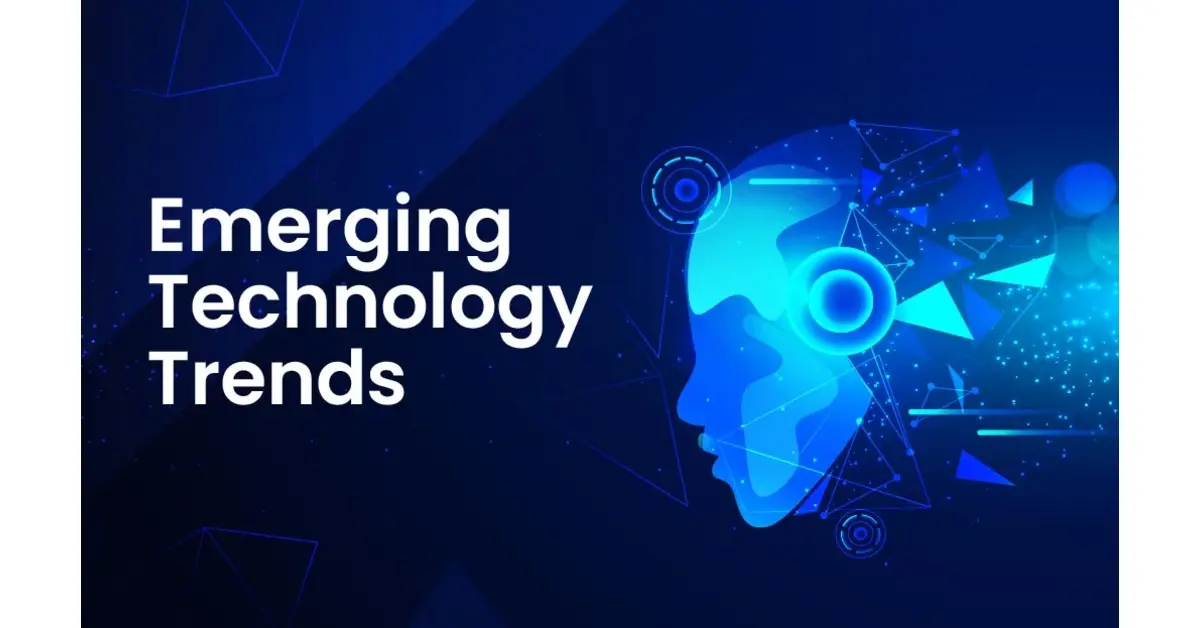Emerging technology is at the forefront of global transformation, propelling industries toward unprecedented levels of efficiency, productivity, and innovation. From artificial intelligence (AI) to quantum computing, these advancements are reshaping how we live, work, and interact. This article delves into the top emerging technologies, their applications, and their potential to redefine the future.
What is Emerging Technology?
Emerging technology refers to innovative technologies in their early stages of development and adoption. These technologies have the potential to disrupt established industries, create new markets, and significantly impact society. Key characteristics include rapid evolution, scalability, and transformative potential.
Top Emerging Technologies in 2024
1. Artificial Intelligence and Machine Learning
Artificial Intelligence (AI) continues to dominate as a transformative technology. Machine learning (ML), a subset of AI, enables systems to learn and adapt without explicit programming.
Applications:
- Healthcare: AI-driven diagnostics and personalized medicine.
- Finance: Fraud detection and automated trading.
- Retail: Personalized shopping experiences and inventory management.
AI’s potential to automate processes, analyze large datasets, and make accurate predictions is pivotal for industries aiming to enhance efficiency.
2. Quantum Computing
Quantum computing leverages quantum mechanics to solve problems far beyond the reach of classical computers.
Applications:
- Cryptography: Revolutionizing secure communications.
- Drug Discovery: Accelerating research for life-saving medications.
- Optimization: Enhancing logistics and supply chain management.
While still in its infancy, quantum computing promises to unlock new possibilities for problem-solving across industries.
3. Blockchain Technology
Blockchain, the backbone of cryptocurrencies like Bitcoin, is evolving beyond financial applications. Its decentralized and secure nature makes it suitable for a range of use cases.
Applications:
- Supply Chain: Ensuring transparency and traceability.
- Healthcare: Securing patient records.
- Digital Identity: Enhancing data privacy.
Blockchain’s potential lies in its ability to provide secure and tamper-proof data management solutions.
4. Internet of Things (IoT)
IoT connects devices to the internet, enabling seamless communication and automation. With billions of devices projected to come online, IoT is transforming everyday life.
Applications:
- Smart Homes: Devices like smart thermostats and lighting.
- Agriculture: Precision farming with IoT sensors.
- Healthcare: Remote patient monitoring and wearable devices.
The integration of IoT into industries enhances operational efficiency and provides valuable insights.
5. Extended Reality (XR): AR, VR, and MR
Extended Reality (XR) encompasses Augmented Reality (AR), Virtual Reality (VR), and Mixed Reality (MR). These technologies are redefining how we interact with the digital world.
Applications:
- Entertainment: Immersive gaming experiences.
- Education: Virtual classrooms and interactive learning.
- Healthcare: Surgical simulations and mental health therapies.
XR is increasingly becoming a cornerstone of interactive experiences across industries.
Benefits of Emerging Technology
1. Enhanced Productivity
Automation and AI-driven tools streamline operations, allowing businesses to focus on innovation rather than routine tasks.
2. Improved Quality of Life
Technologies like telemedicine and smart devices enhance convenience and accessibility, particularly in remote areas.
3. Economic Growth
Emerging technologies drive new business models, creating jobs and stimulating economic development.
4. Sustainability
Green technologies, such as renewable energy solutions and carbon capture, play a vital role in combating climate change.
Challenges and Ethical Considerations
While emerging technologies offer numerous benefits, they also pose challenges:
1. Privacy and Security
Data breaches and misuse of personal information are significant concerns, especially with AI and IoT.
2. Job Displacement
Automation may lead to job losses, requiring workforce reskilling to adapt to new roles.
3. Accessibility and Equity
Ensuring that technological advancements benefit all socioeconomic groups remains a challenge.
4. Ethical Use
The ethical implications of AI, such as bias in decision-making and misuse, need careful regulation.
The Future of Emerging Technology
The trajectory of Emerging technology is clear—they are becoming integral to every aspect of life. Here’s a glimpse into what the future might hold:
1. AI Integration Across Industries
AI will likely become ubiquitous, driving advancements in autonomous vehicles, smart cities, and predictive healthcare.
2. Quantum Supremacy
Quantum computing is expected to revolutionize sectors like cryptography, materials science, and complex simulations.
3. Decentralized Internet
With blockchain and Web3 technologies, the internet could become more decentralized, empowering individuals over centralized entities.
4. Space Exploration
Innovations like reusable rockets and AI-driven exploration tools are set to make space more accessible.
Conclusion
Emerging technologies are not just reshaping industries but are also redefining societal norms and human potential. Their growth brings immense opportunities for innovation while posing significant challenges that demand thoughtful solutions. Businesses, governments, and individuals must collaborate to harness the benefits responsibly and sustainably.


